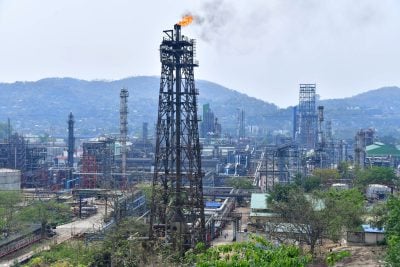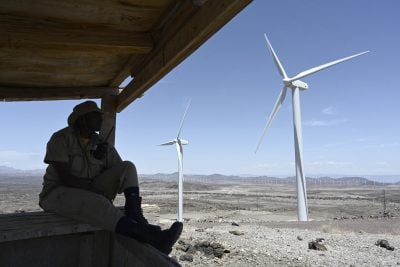This article was produced with the support of OCP
Growing international concern over water availability is affecting a wide range of sectors.
As average temperatures rise, the frequency, duration and severity of droughts and floods is increasing, with higher rates of water evaporation, earlier snowmelt and precipitation falling more often as rain rather than snow. The alternation of periods of extreme rainfall and intense heat or aridity is affecting agriculture and causing a host of environmental problems.
The availability, distribution and quality of water in Morocco, where most of OCP’s operations are based, are under threat: the country is considered to suffer fresh water scarcity. As a result, OCP Group has decided to radically change its water use strategies across its operations to completely phase out its use of fresh water.
The Group is running a water programme based on the circular economy principles to sustainably ramp up fertiliser production and ensure food security, while incorporating integrated and optimised water management.
This water programme seeks to reduce its water consumption through the implementation of water efficiency measures, while tapping into unconventional sources of water to cut fresh water consumption.
In short, it is changing both the type of water it uses and how much it consumes in both its mining and processing operations, which both rely on water supplies.
A third of the water it consumes is used in mining, mainly by its phosphate washing plants, with the other two thirds used in its industrial processing plants, which produce sulphuric acid, phosphoric acid and fertilisers.
Commitments
OCP Group has decided to accelerate the implementation of its water use programme. It reduced its water consumption by 10.3% between 2019 and 2021, and intends to push this figure up to 15% by 2024. In particular, the company is aiming to recover 90% of all water used in phosphate washing plants and to achieve a 90% reduction in the use of water for watering mine runways, leveraging on cutting-edge runway treatment technology and saving 2m cubic metres of water in the process.
In addition, the group plans to increase the proportion of non-conventional resources in its total water consumption from 30% in 2021 to 100% by 2026. Non-conventional water may be desalinated seawater and treated wastewater. Using it leaves more freshwater available for drinking water and agricultural irrigation, maintaining river levels, or other uses. That 30% share of non-conventional water was equivalent to 36m cubic metres of water in 2021, which was produced through sea water desalination and municipal wastewater treatment.

Aerial view of one of OCP’s wastewater treatment plant at Khouribga, Morocco.
In addition to the use of non-conventional resources, OCP’s accelerated water programme covering 2021-26 is based on optimised consumption and offering products and services that support sustainable and resilient agriculture. It is investing $611m in non-conventional water projects over the period, with spare drinking water provided to local communities.
It will complete two new wastewater treatment plants at the towns of Safi and Fkih Ben Salah by the end of this year, providing 10m cubic metres a year of new water recovered from urban wastewater. Work has also begun on two other wastewater treatment plants.
Research efforts
OCP is working with the International Water Research Institute (IWRI) at the University Mohammed VI Polytechnique (UM6P) to help create forward-thinking pathways to address water challenges in a systemic manner in Africa, including through the development of low-cost innovative water and energy solutions. It is also using the Aqueduct Water Risk Atlas to understand where and how water risks and opportunities affect its operations.
In line with its vision, OCP is investing in sustainable industrial development in terms of supporting the energy transition and carbon neutrality, as well as in sound water stewardship. There are several connections between the company’s approach to sustainable water use and the promotion of renewable energy. For instance, although desalination can cut the proportion of freshwater needed, desalination plants often consume fossil fuels, so OCP will use solar plants to power its desalination facilities, as well as the cogeneration technology that is already feeding those plants.
Clean energy accounted for 87% of the firm’s power requirements in 2021 and it aims to increase this to 100% by 2030, while also reducing the energy intensity of its operations to cut the amount of power – as well as water – consumed.
Support for farmers
At the other end of the supply chain, OCP is seeking to support farmers at a time of increased water stress and rising salinity levels. Salinity is a major problem that threatens agricultural activity as well as farmers’ income in several parts of the country, partly because of overexploitation of aquifers. Among the practical solutions to salinity is the use of salinity-tolerant crop strains and the application of soil amendments.
For instance, OCP is improving agricultural productivity and resilience to salinity in the area of Sidi Abed and Oulad Ghanem, close to Jorf Lasfar facilities, through the introduction of new production systems and best cropping practices. The three-year project aims to remedy the salinity problem by introducing new adapted production systems and good soil, water and crop management practices, as well as by strengthening the technical capacity of farmers, women’s cooperatives and extension agents.

 Sign in with Google
Sign in with Google 





